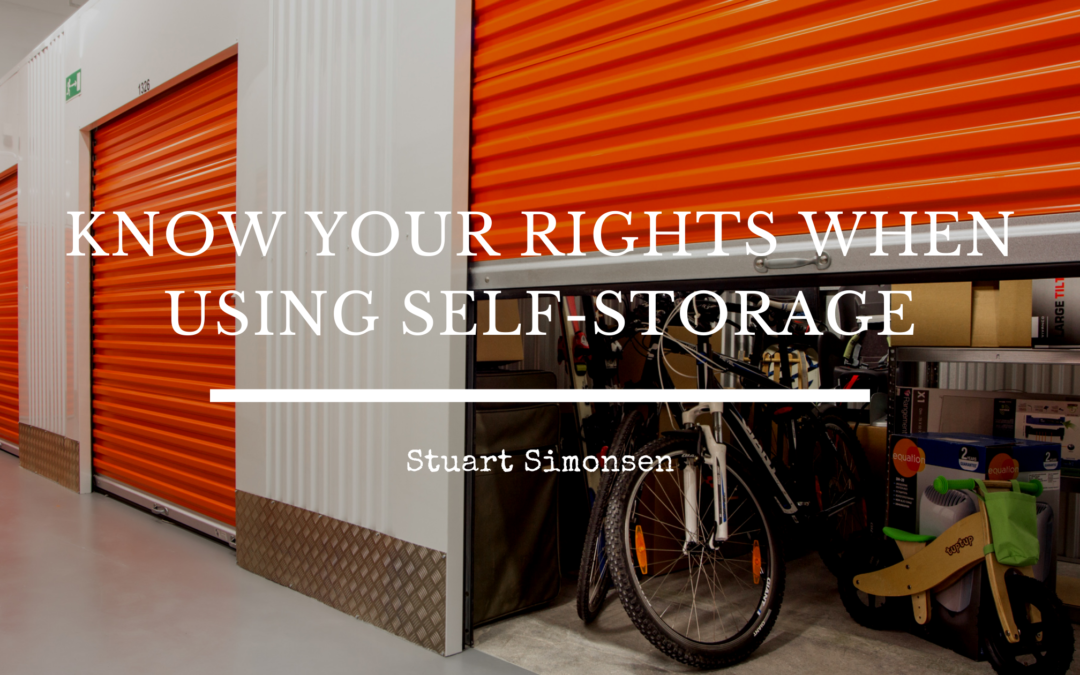Modern self-storage facilities have been around since the late 1960s, with the first chain of name brands opening in Texas. For people who are in a transition or in a situation where they need to keep a collection of belongings safe, it’s a great option, serving as an apartment for your possessions. It is important to know your rights as well as your responsibilities if you decide to use this method of containment.
The first thing to understand is that you are signing a lease, just like you would with a piece of property. This is a contractual agreement between you and the storage facility that you each have certain rights and responsibilities that you must both uphold. Contrary to popular belief, the self-storage industry tends to use documentation and statutes that favor the lender, as opposed to the renter. The agreement between parties is not a compromise, it is more of a take it or leave it scenario. Upon signing, you are agreeing to all of the rules and regulations surrounding that facility. It is very important to thoroughly read and understand your lease before signing. Any noncompliance might be seen as an issue and could potentially make the lease null and void. If you disagree with any part of the contract it is vital that you put it in writing directly on the paperwork. Verbal agreements will not hold up in court.
You have a right to have your own lock on your storage unit. If for some reason an accident or Act of God occurs that damages your lock, the storage facility is required by law to replace it temporarily until you have a chance to put a lock back on. They then need to respond in a timely matter to your requests to remove their temporary lock so you can have access to your belongings. If you choose to lease a unit at a round-the-clock facility, then you also have the right to visit your unit 24/7. There are also climate-controlled units that you have the right to pay extra for, and with that higher price comes the assurance that they are keeping up their end of the bargain with temperature balance.
The number one dispute regarding self-storage is when a decision needs to be made about the contents of a unit. If a renter stops payment there could be any number of legitimate reasons why, such as a death in the family or a transfer of ownership from one party to the next. For this reason, there are steps a property owner is required to follow by law before freely opening the unit and exploring its contents. The problem lies in the laws that have been established within each state when it comes to tracking down people to give notice. Although they tend to vary slightly, the general rule of thumb is to either place an ad in the classifieds in an effort to locate the renter or to send correspondence to the last known address. Neither of which will be useful if the person is now homeless, incapacitated, or moved away.
